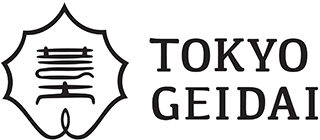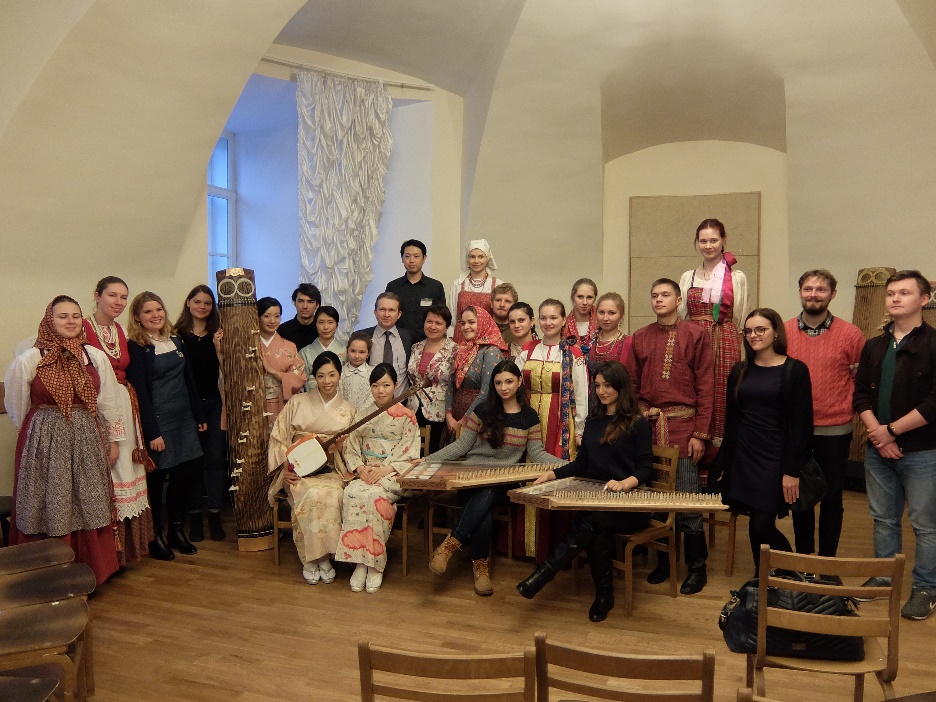アントレプレヌール支援:邦楽科におけるグローバル・キャリア展開Promoting entrepreneurship: Global career development in traditional Japanese music 2017
June 18, 2018
基本情報
研修者:東京藝術大学 邦楽専攻の学生 9名
研修先:サンクトペテルブルク(ロシア)
研修期間:2017年10月22日~10月28日
研修の成果
本事業は、グローバル・キャリア展開という視座から、これから海外でも自主企画の実現をめざす邦楽専攻の若手アーティストに、渡航手続きからイベント実施にいたるまでの工程の試行を支援するものです。
今回は、本事業の4回目であり、出演グループ+予備調査グループで、3つのイベントで文化交流を果たすことができました。昨年初めて進出が叶った、サンクト・ペテルブルグ(以下SPb)への渡航で、SPb音楽院主催の「国際音楽院週間International Conservatory Week Festival 2017」の一連のプログラムとして、2つのコンサートでの演奏披露及び、ロシア・アルメニア・日本の楽器による「The Artistic Meeting」において3か国の交流演奏会に参加しました。すべてのイベントが成功に終わり、現地関係者ならびに聴衆の皆様に喜んでいただき、日本を象徴する着物や、日本の楽器、演奏した楽曲について多くの質問を受け、大変興味を持っていただくことができました。
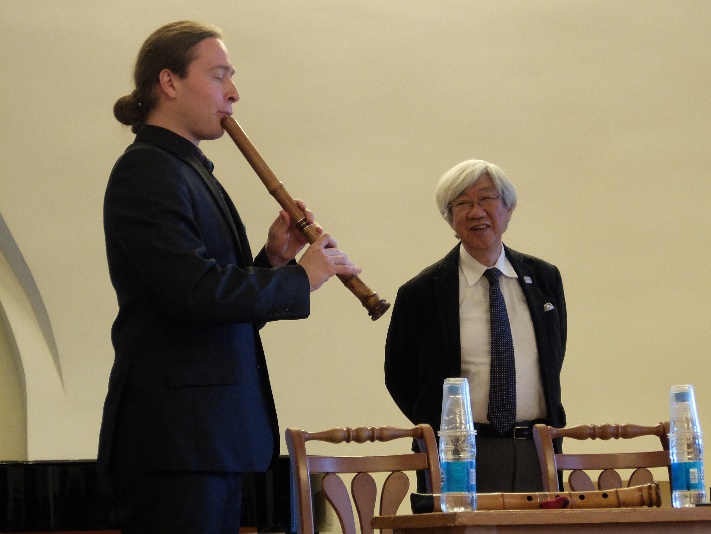
グローバル・キャリアを築く第一歩として、まず日本の音楽である伝統楽器による演奏を、現地の観客の皆様の前で実際に披露できることが挙げられますが、次にお客様をはじめ、関係者の方々との交流、また他のイベントに参加・出演している演奏者の方々との交流を深める目的もあり、その目的を達成するために、参加メンバーが各人の方法で、交流する機会を持とうとする試みが見られ、積極的に自分自身をアピールする姿がうかがえました。
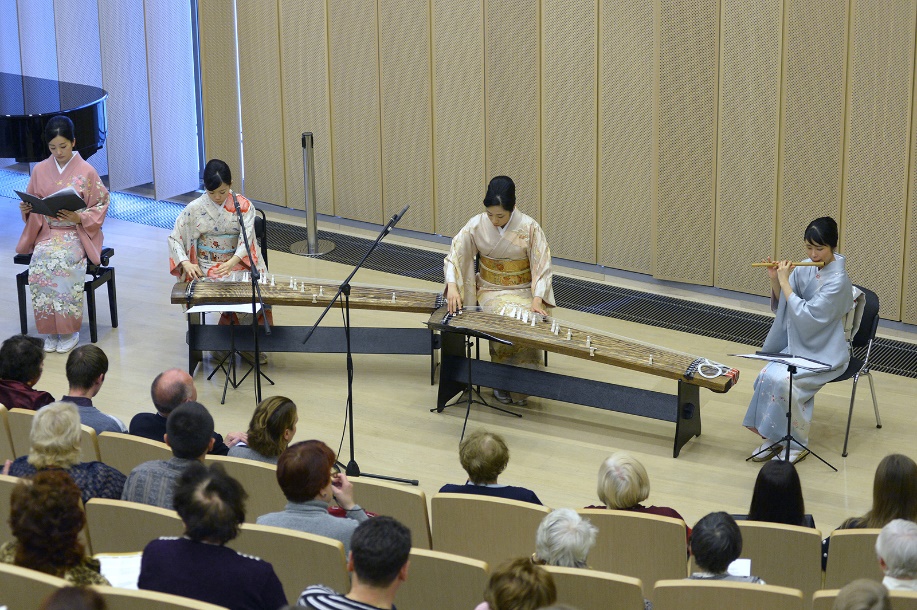
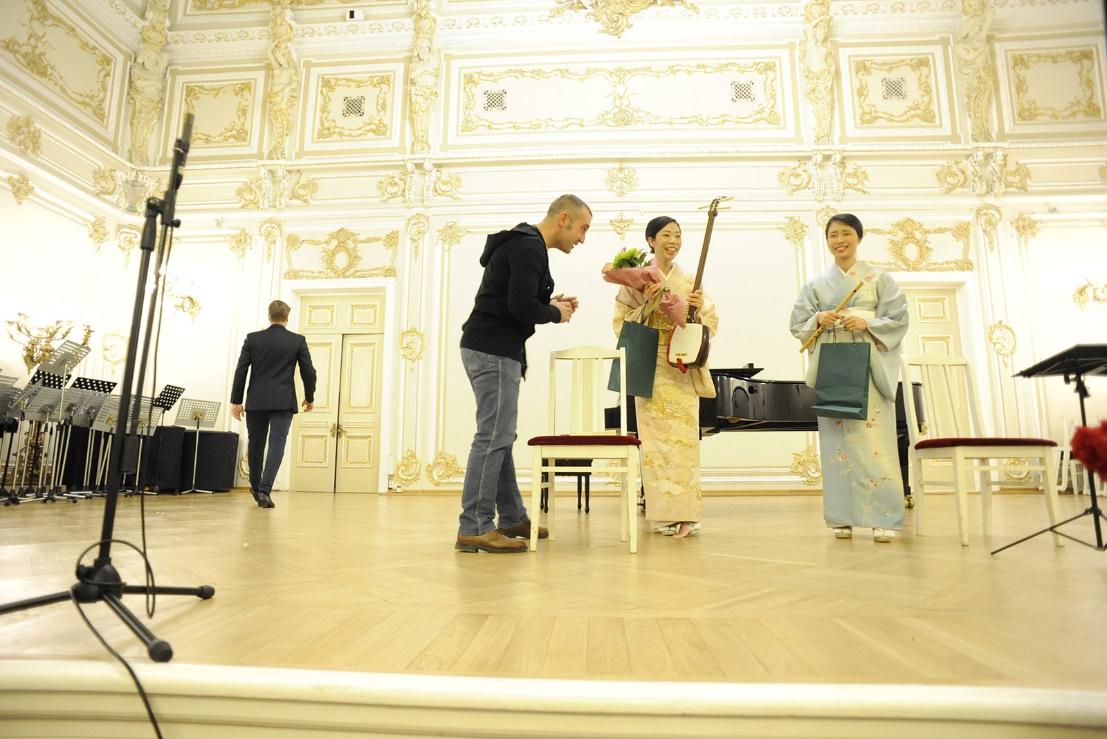
初出演のメンバーは、自信を持って見事に演奏をこなし、十分にロシアの聴衆を惹きつける能力を発揮しました。日本の若手演奏家を代表しているという意思が演奏や行動に現れ、古典音楽の伝承、伝統楽器による現代曲の普及を目指し、日本伝統文化の紹介とともに、音楽によって人と人とが繋がることで、日露の友好的活動において社会的貢献を果たすことができました。
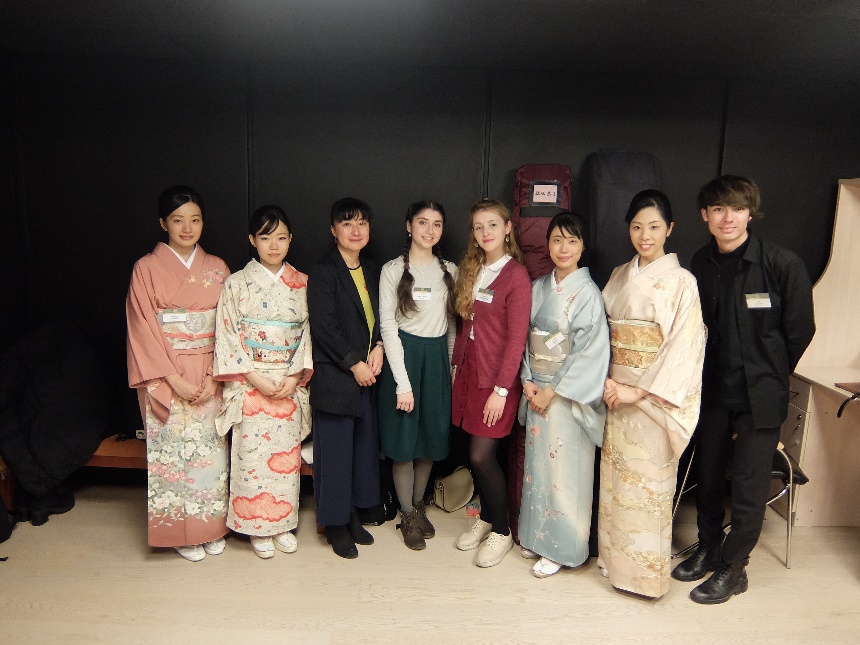
今回の渡航では、本事業の第1回目から連続で参加している修了者2名が引率者兼演奏者として、初出演・初参加のメンバーを牽引する立場となり、その役割を十分に果たしました。この2人の若手演奏者が、さらに後進を育成する立場で、海外進出を目指す若手の指導者として大いに活躍できる機会となりました。本事業4回目にして、事業に参加したメンバーが、主導となって学生を率いる渡航となり、演奏家としての目線から今までの渡航で経験したことを活かし、後進へ伝え繋いでいくという理想的な成果を得ることができ、事業を継続してきた意義が感じられました。また、出演・予備調査両グループのメンバー全員が、ロシア滞在中に、自分自身で海外へ進出する方法を見出す努力をし、将来の演奏家としての姿を模索し、目標を固めていく様子がみられました。
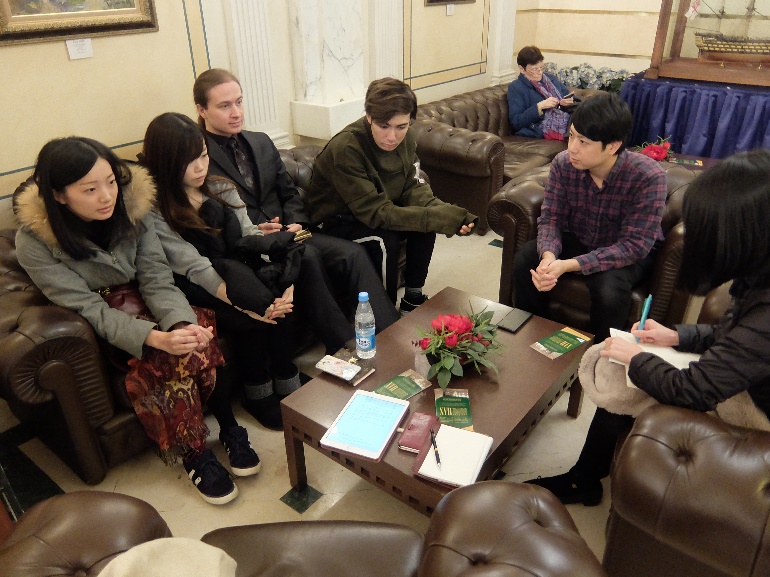
事業の実績が、若手演奏家の海外進出活動の先駆となり、将来の後進へと繋ぐ活動の基盤が形成され、若手演奏家の可能性の拡大が期待できます。そして、本事業が継続されることで、ますます日本の伝統文化としての邦楽を国際的に海外に発信するために、本学の邦楽若手演奏家が海外で活躍する場が少しずつでも開拓されていくことを願います。
Basic information
Participants: Nine current and former students of traditional Japanese music
Location: Saint Petersburg, Russian Federation
Period: Oct 22-28, 2017
Achievements
Aiming to promote global career development for young performers of traditional Japanese who intend to individually produce and perform at overseas concerts, this project assists in their undertakings from logistical arrangements to the implementation of events.
In 2017, the fourth year since the launch of the project, the two respective groups of performers and preliminary research members successfully implemented three events in Saint Petersburg, the city where the project made debut in the previous year. They performed at two concerts during the International Conservatory Week Festival 2017 that was hosted by the Saint Petersburg State Conservatory, and also at the Artistic Meeting, the exchange concert of traditional music instruments by Russian, Armenian, and Japanese musicians. All these events successfully ended, attracting local collaborators and audiences and receiving a number of questions about the traditional Japanese musical instruments and music pieces performed, as well as Kimono that was considered to symbolize Japan.

While the first step for the participants to develop a global career was to perform their respective instruments in front of foreign audiences, the next step was to have a closer contact with local audiences and collaborators, and fellow performers of each event. They were trying to take the second step in their own ways, actively promoting themselves as musicians.


Those who performed in the project for the first time successfully managed to perform with confidence, exhibiting their abilities to attract the audience in Russia. Their performance and behavior reflected their pride that they were representing young Japanese musicians, and also their determination that they would carry on the traditional of classical Japanese music while advocating contemporary pieces performed with traditional instruments. They aimed to introduce traditional Japanese culture to the foreign audience and connect them with the power of music. Thus, they made social contributions by participating in the friendly activities between Japan and Russia.

This year’s members included two former students who had regularly participated in the project from the launch year. They successfully lead the novice participants as escorting staff and senior performers, which were their expected roles. Furthermore, they fully made use of the opportunity to exert their leadership in guiding their juniors who wished to leap to the global stage. Indeed, the fourth year was remarkable in the sense that the project was carried out under the leadership of the senior participants, and their experience as performers that had been acquired during the last few visits to Russia was handed over to their posteriors. It was an ideal outcome of the project and the significance of continuing the project was thus confirmed. Furthermore, it was observed that all the performing and research members were individually striving to find ways to step up to the global stage, starting to focus on their respective goals by contemplating what musician they want to be in the future.

It is expected that the achievements of this project will expand the possibilities of young aspiring performers by facilitating them to globally compete and providing them an activity base that it to be succeeded by later generations. It is also hoped that the project will be continued to deliver traditional Japanese music to the world’s audience and to develop fields, if only slowly, for our students to achieve a global career.
